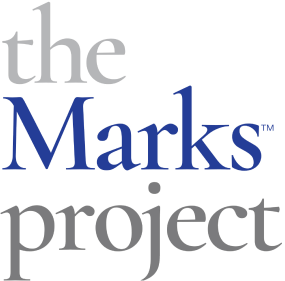![]() Printer version
Printer version
Stephen De Staebler
1933Born Webster Groves, Michigan
2011Died Berkeley, California
EDUCATION
1951 Black Mountain College, NC; studied with Ben Shahn, Robert Motherwell
1954 Fulbright Scholarship
1954 BA Religion, Princeton University, Princeton, NJ
1957 Brooklyn Museum School, Brooklyn, NY, Studied with Ka-Kwong Hui
1961 MFA, MA Art History University of California, Berkeley, CA; studied with Peter Voulkos
PRIMARY WORK EXPERIENCE.
1961—Studio artist
1961 Taught, San Francisco State University, San Francisco, CA
1961-1967 Taught, San Francisco Art Institute, San Francisco, CA
1967—1992 Associate Professor of Sculpture, San Francisco State University, San Francisco, CA
BIOGRAPHY
Stephen DeStaebler is known for abstract figural sculptures. DeStaebler studied ceramics with Peter Voulkos at the University of California, Berkeley. He went on to become an important artist in the California figural clay movement creating porcelain and stoneware figures.
Initially working in a horizontal format, by 1971 he began experimenting with methods of forming more vertical structures. A visit to John Mason’s studio resulted in the use of armatures to support the vertical forms. By 1975 DeStaebler had developed a method of arranging wet segments into layered pyramidal forms. Allowing the clay to shrink, crack, slump and warp as it dried, he created a sense of geological strata. His monumental totems of eight to nine feet tall evolved by the 1980s, requiring him to fire them in sections. Built using deconstructed or fragmented figures, especially legs, he achieved the look of totems discovered on an archeological dig. He further reinforced this reference by rubbing the surfaces with colored oxides or mixing the oxides into the clay body. The nature of his work reflects the merging of the influences of his time: exploring the damaged ancient sculptures and religious statues at post-WWII sites in Europe in the early 1950s and the influence of Peter Voulkos’ emphasis on clay’s organic properties. DeStaebler continues to influence young figural ceramists, not only because of the originality of his approach to the material, the monumental scale and distortion of the figural totems, but as importantly, the spirituality and emotional power of these works.
In the late 1980's, when making monumental clay totems became too difficult, DeStaebler turned to bronze. The new material allowed him to create pieces that were visually lighter.
PUBLIC COLLECTIONS
Arizona State University Art Museum, Tempe, Arizona
Berkeley Art Museum, Berkeley, California
Brunnier Art Museum, Iowa State University, Ames, Iowa
Contemporary Art Museum, Honolulu, Hawaii
Crocker Art Museum, Sacramento, California
Everson Museum of Art, Syracuse, New York
Fine Arts Museum of San Francisco, San Francisco, California
Frederick R Weisman Art Museum, University of Minnesota, Minneapolis, Minnesota
Fresno Art Museum, Fresno, California
Johnson County Community College, Oakland Park, Kansas
Los Angeles County Museum of Art, Los Angeles, California
MacNider Art Museum, Mason City, Iowa
Metropolitan Museum of Art, New York, New York
Minneapolis Institute of Arts, Minneapolis, Minnesota
Mint Museum, Charlotte, North Carolina
Moores School of Music, University of Houston, Texas
Museum of Arts and Design, New York, New York
Museum of Fine Arts, Boston, Massachusetts
Neuberger Museum, Purchase, New York
New Britain Museum of Art, New Britain, Connecticut
New Orleans Museum of Art, New Orleans, Louisiana
Palm Springs Art Museum, Palm Springs, California
Oakland Museum of Arts, Oakland, California
Philbrook Museum, Tulsa, Oklahoma
Runnymede Sculpture Park, Woodside, California
San Francisco Museum of Modern Art, San Francisco, California
San Jose Museum of Art, San Jose, California
Sheldon Museum of Art, University of Nebraska, Lincoln, Nebraska
Smithsonian American Art Museum, Washington DC
Snite Museum of Art, University of Notre Dame, South Bend, Indiana
Topeka and Shawnee County Public Library, Topeka, Kansas
University of California at Berkeley Art Museum, Berkeley, California
BIBLIOGRAPHY
Baker, Kenneth, review of, “Matter + Spirit at the de Young Museum; Sculptor Stephen De Staebler Grew as Works Decayed,” San Francisco Chronicle, January 19, 2012.
_____________, review of, “New Images of Man and Woman,”San Francisco Chronicle, December 26, 2009.
Burgard, Timothy Anglin, Rick Newby, and Dore Ashton. Fine Art Museum of San Francisco, San Francisco, CA: UC Press, 2011.
Clark, Erin, “Stephen De Staebler,” ArtWorks Magazine, (Fall 2009).
Clark, Garth, Hughto, Margie. A Century of Ceramics in the United States 1878-1987. New York, NY E.P.Dutton, The Everson Museum of Art, 1979.
Edwards, Sharon. “A Conversation with Stephen DeStaebler.” Ceramics Monthly 29, no.4 (April 1981).
Del Vecchio, Mark, Postmodern Ceramics. New York, NY: Thames & Hudson, 2001.
Lauria, Jo. Color and Fire Defining Moments in Studio Ceramics, 1950-2000. Los Angeles, CA: Rizzoli International Publications, Inc., LACMA, 2000.
Levin, Elaine. The History of American Ceramics from Pipkins and Bean Pots to Contemporary Forms -1607 to Present. New York, NY: Harry N. Abrams, Inc., 1988.
__________. “Stephen Destaebler.” Ceramics Monthly 29, no.4 (April 1981).
Perry, Barbara, ed .American Ceramics the Collection of Everson Museum of Art. New York, NY. Rizzoli, Everson Museum of Art, Syracuse,1989.
Peterson, Susan. The Craft and Art of Clay. Woodstock, NY: Overlook Press, 2000.
Selz, Peter, “Stephen De Staebler: The Endurance of Vulnerability Art,” LTD Magazine (May 2010).
WEBSITE(S):
https://www.stephendestaebler.com/
Citation: McGee, Donna. "The Marks Project." Last modified August 21, 2025. http://www.themarksproject.org:443/marks/de-staebler



